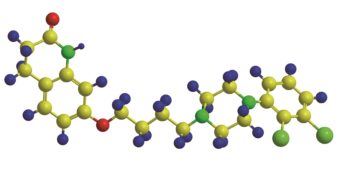
BSIP SA / Alamy Stock Photo
Drug side effects often remain unreported in published articles based on clinical trial findings, a systematic review has revealed.
Researchers found that an average of 46% of published material reporting clinical trial data contained information about adverse events, compared with 95% of unpublished material relating to the same trials.
This discrepancy has prompted the authors to call for “urgent steps” to be taken that will allow access to unpublished data to give a complete picture about any potential risks an intervention may pose.
Reporting their findings in PLoS Medicine
[1]
on 20 September 2016, the authors say: “The extent of ‘hidden’ data has important implications for clinicians and patients who may have to rely on (incomplete) published data when making evidence-based decisions on benefit versus harms.
“Our findings suggest that poor reporting of harms data, selective outcome reporting, and publication bias are very serious threats to the validity of systematic reviews and meta-analyses of harms,” they add.
The researchers based their findings on a search of 15 clinical trial databases, as well as material found following hand searches, internet searches, reference checks and interviews with experts. They looked in detail at a total of 28 studies.
The authors were able to directly compare the number of adverse events in published and unpublished documents involving the same intervention using data from 11 studies. They found that, on average, the percentage of adverse events that would have been missed if analysis relied only on the published data was 64%.
When they looked more closely at these 11 studies, the researchers found 24 direct comparisons of named adverse events for the same intervention. The number of adverse events was higher in the unpublished material compared with the published documents in 18 of these 24 comparisons.
“Incomplete reporting of adverse events within published studies was a consistent finding across all the methodological evaluations that we reviewed,” the authors say.
“This was true whether the evaluations were focused on availability of data on a specific named adverse event, or whether the evaluations aimed to assess general categories of adverse events potentially associated with an intervention.”
They add: “Our review demonstrates the urgent need to progress towards full disclosure and unrestricted access to information from clinical trials.”
Till Bruckner, manager of the AllTrials campaign — an international campaign run by the charity Sense about Science pushing for all clinical trials to be registered and their results reported — comments: “The government must ensure that all clinical trials are registered and their methods and full results published.
“GlaxoSmithKline has committed to making available full trial reports, so it’s clearly possible. It’s high time all other players follow this positive example. Human lives are at stake. Doctors and patients need to see all the evidence to decide which treatments will work best.”
References
[1] Golder S, Loke Y K, Wright K et al. Reporting of adverse events in published and unpublished studies of health care interventions: a systematic review. PLoS Med 13(9):e1002127. doi: 10.1371/journal.pmed.1002127


